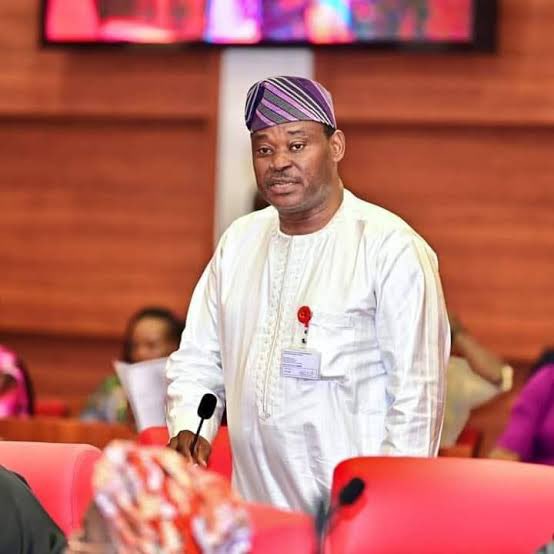Senator Jimoh Ibrahim has called on the Nigerian government to urgently tackle the nation’s worsening hunger crisis by issuing food vouchers to low-income citizens.
Ibrahim made this plea at the 2024 IMF/World Bank Annual Meetings in Washington, DC, where he joined Nigeria’s delegation.
In his address, he argued that food vouchers would directly help struggling households across the country and be more effective than the government’s current cash-transfer program.
According to Ibrahim, food vouchers would offer immediate relief to approximately five million low-income families, amounting to about 25 million Nigerians.
“With food vouchers, we can ensure that families receive the support they need to feed themselves,” he said.
This proposal comes amid soaring food prices and inflation in Nigeria, which have left millions of Nigerians struggling to afford daily meals.
Ibrahim, who also chairs the Senate Inter-Parliamentary Committee, highlighted that economic reforms, including the removal of fuel subsidies and adjustments in foreign exchange rates, have impacted the cost of living, especially for Nigeria’s poorest citizens.
“These reforms have their benefits, but we must ensure they don’t deepen poverty for the most vulnerable in society,” he explained.
The suggested that food vouchers would be a strategic solution to ease food scarcity and give relief to Nigerians already burdened by inflation and rising costs.
Finance Minister Wale Edun, also present at the meeting, outlined the Nigerian government’s initiatives aimed at boosting food production as a longer-term measure to address inflation and hunger.
Edun explained that food prices currently account for around 50 percent of the Consumer Price Index, making them a significant driver of inflation in the country.
“To curb inflation, we need to address food scarcity and production challenges,” Edun stated.
The Minister revealed that the government has been focusing on supporting small-scale farmers and enhancing wet-season harvests to ensure food security.
In addition, plans are underway to help approximately 600,000 farmers grow wheat on a million hectares of land this November, followed by rice farming initiatives in early 2024.
The goal, according to Edun, is to ensure food availability and price stability in both urban and rural areas.
“Our efforts to increase food production will help stabilize food prices and improve affordability for all Nigerians,” he said.
These efforts, in conjunction with measures from the Central Bank of Nigeria to address inflation, are aimed at bringing relief to households hit hardest by rising food costs.
Ibrahim emphasized that while these initiatives are positive, food vouchers would have an immediate impact on hunger and food security.
“Food vouchers would empower families to access food directly, rather than relying on cash that could be affected by inflation,” he stated.
For many Nigerians, the rising cost of living has reached critical levels, sparking fears of a severe hunger crisis that could affect millions.
Experts say inflation, fueled by high fuel prices and currency depreciation, has contributed to a situation where basic goods, including food items, have become unaffordable for average citizens.
Ibrahim pointed out that the introduction of food vouchers would align with global best practices in supporting vulnerable populations.
Countries such as Brazil and Mexico, he noted, have implemented similar programs to help their citizens meet basic needs.
He called on the Nigerian government to consider adopting this approach, citing its potential to reduce food insecurity and promote social stability.
“If we want to address hunger at its root, food vouchers are a targeted and impactful solution,” Ibrahim said.
The also urged Nigerian leaders to prioritize food security policies that offer practical solutions for struggling families.
“The government’s duty is to ensure that Nigerians can feed themselves. It is a basic right, and food vouchers are a direct way to make this happen,” he added.

